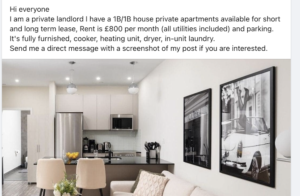
Welcome to my post with SEO tips for bloggers.
Part of my day job is writing web copy for companies big and small – so over the years, I’ve picked up a bit about search engine optimisation (SEO). Now, SEO sounds very technical and complicated but at heart, it’s simple – it’s about creating your web content in such a way that people looking for that sort of content using search engines can find it easily.
Seriously, SEO only gets more complicated than that if you’re posting the same sort of content as loads of other people, or you’re trying to hijack search results that aren’t strictly relevant to your content.
Presuming you’re not interested in either of those two approaches, here are some quick SEO tips for bloggers based on my extremely limited, non-technical perspective.
- First, think about keywords and phrases. What will people search for when finding your blog? Think of a couple of global keywords and phrases that you’ll use across your whole blog, headlines, images and tags. But don’t forget to think of a couple of keywords and phrases for each specific post. So you might have global keyword like “SAHM” alongside a more specific phrase such as “persuading toddlers to eat”.
- Once you have keywords, it’s worth bearing in mind the idea of keyword density – this means using the relevant keywords frequently in your blog. DON’T over-do this or your blog will read like crap, but using a keyword in the headline, opening par and final par won’t hurt.
- Sanity check keywords and phrases. Look at your own stats in Google Analytics or Sitemeter to get an idea of what search terms people ARE using to get to your site. You might look at Google Trends or AdWords to see what search terms are being used generally. If a keyword isn’t working, don’t be afraid to change it.
- Every time you write a post, include keywords in your headline. This is one of the first things search engines look at when indexing your site, so it’s vital to include those keywords, rather than relying on witty headlines that might look great, but don’t do much for traffic (I must admit to often ignoring this, it’s my inner journo – I just can’t resist a good headline).
- In Typepad, your permalink (the specific URL linking to that blog post) will by default include your headline, but in WordPress you actually need to tweak the settings to do this. So it’s better to have a permalink along the lines of www.blog.wordpress.com/startingschool than www.blog.wordpress.com/page=213
- Have categories set up, and try to make them specific and relevant to your keywords. Use categories for every blog post and try to include them in permalinks where you can.
- Link to your own content. When you link to earlier posts on your blog, it can boost your search rankings for some weird reason I don’t totally understand. So if you’re referring to a previous post, provide a link. Provide round-up posts. Include links in your sidebar to recent posts and comments. It all helps. Of course, only do this if it’s relevant, or readers will just get confused.
- Be generous with tags. Set up your blog so readers don’t necessarily have to see that you’ve given each post about 10 tags, but do use them. Tag using your keywords, and they’ll be picked up by Google. Tag images, too, when they’re on your blog, again using keywords.
- Update content regularly. It sounds simple but one of the reasons blogs and social networks do better than conventional websites in search results is because Google (other search engines are available) prefers dynamic to static content. Regularly adding fresh, relevant content is one of the best ways to boost your blog’s visibility.
- Advertise the blog. Link out, and you’ll start to receive links back. Inbound links from different sites will increase your visibility in search engines. Use Facebook and Twitter to promote your blog, put your blog address on your business cards, on your website, and on your email signature. Add your blog to directories and aggregation services. Make it very easy for people to see that you blog.
- Next, if you’re running a business or hoping to monetise the blog, host it on your own domain. That’s sort-of easy to do with both WordPress and Typepad (haven’t used Blogger, but I assume it’s perfectly possible). Your website will also benefit from the SEO, or you’re just wasting the traffic you’re generating.
- Submit your blog to Google and create a Google Sitemap – you can do this from within Typepad and using a plug-in with WordPress, or you can just send Google a sitemap as a txt or xml file
SEO is an ongoing part of blogging – not something you can do once and forget about. So once you’ve started to build this stuff into your blog, monitor how well it’s working. Using Sitemeter, Analytics and similar tools will show how well your SEO is working, which keywords work, which posts generated most traffic, where inbound links are coming from. While it’s not worth obsessing about (although I do, obviously) you should keep an eye on these metrics and make adjustments where you think performance could be better.
These tips should only be considered once you’ve sorted out what your blog is about. Writing a blog purely to attract traffic NEVER works. Nobody ever subscribed to a blog because it had great title tags and primary keyword density. Get the content right, then think about how you can add SEO to the mix if you want to.




